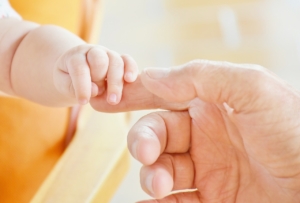Beginnings are important. However, beginnings do not necessarily determine endings. With our lives, our beginnings matter, too. Just like a good story, there can be plot twists that change everything. What this means for us is that even a rough start to our lives does not mean the ending cannot be good and transform the entire experience.
We are deeply vulnerable from our earliest days. None of us has a choice about where we are born, or the family and situation into which we are born. Some of us are born or adopted into loving, stable, and nurturing families, while others of us find ourselves in less-than-ideal situations. How you are raised, and whether your needs have been met over the years has a significant impact on the type of attachment style you develop in your relationships.
There are four different attachment styles. Each style can affect how you conduct your relationships.
- Healthy or secure attachment.
- Avoidant or dismissive attachment.
- Disorganized or fearful attachment.
- Anxious or preoccupied attachment.
Making sense of attachment styles
 The term attachment style originated from a psychiatrist and psychoanalyst named John Bowlby. His idea was that the earliest bonds that a person has in their life, such as with their parents or caregivers, have a huge influence on that person’s future relationships with others. That includes personal relationships and even more formal relationships such as how you relate to others at work.
The term attachment style originated from a psychiatrist and psychoanalyst named John Bowlby. His idea was that the earliest bonds that a person has in their life, such as with their parents or caregivers, have a huge influence on that person’s future relationships with others. That includes personal relationships and even more formal relationships such as how you relate to others at work.
Bowlby suggested that a person’s earliest relationships created something like a roadmap, template or set of rules for how a person will go on to build and make sense of their relationships as an adult. That means a person’s beginnings, their first experiences of being loved and taken care of, go on to help them understand other relationships later in life.
If you have been around a child, especially an infant or young child, it is evident that they have a wide array of needs, both physiological and emotional. Moreover, they cannot meet any of these needs on their own. They need to eat, to be changed, bathed, soothed, comforted, played with, and stimulated. Depending on whether and how these needs are met, a child will develop a particular attachment style.
For instance, if a child does not receive the attention she needs, or if her needs are not met in a way that fits that her makeup, that may lead to an insecure form of attachment. This inattention or inability to meet the child’s needs may not be intentional. A lot can happen to prevent a person from meeting their child’s needs, but regardless of the reason, the child may nonetheless perceive it as her needs not being met.
On the other hand, a parent or caregiver can be highly attentive to the needs of the child, whether those needs are expressed clearly or not. They move toward the child, creating a nurturing and caring environment as they meet those needs. When one does this, this can lead to a child being securely attached.
The different types of attachment styles
What is a secure or an insecure attachment? The four attachment types can be described as follows:
Healthy or secure attachment
When one’s needs are met, a person forms a healthy relationship with their needs, and expectations toward these needs being met in relationship with others. Secure attachment leads to relationships that are open, honest, and emotionally close. The person will have positive self-regard, will be able to regulate their own emotions, and will not be desperate for validation from others.
 Avoidant or dismissive attachment
Avoidant or dismissive attachment
This is one of three forms of insecure attachment. After not having their needs met, a person develops a deep-set idea that they must meet their own needs and that others are not dependable. This results in deep self-sufficiency and independence, which can look like emotional withdrawal and avoidance of intimacy. They might also hide their emotions, such as conflict, where emotions can run high.
Disorganized or fearful attachment
Depending on the situation, a person with this attachment style will swing between the other forms of insecure attachment. While wanting and seeking emotional intimacy, they are afraid of getting hurt and so struggle to trust others.
Anxious or preoccupied attachment
While regard for others highly, a person with this attachment style will regard themselves poorly. After experiencing unmet needs in childhood, they feel unworthy of love and fear being abandoned. Desiring the approval of others, they long for security in a relationship. This can sometimes result in clingy behavior, as well as deep anxiety about the state of the relationship.
 As you look at your life, you may recognize how you relate with other people in relationships. Perhaps you desire closeness with another person, but the moment things start to look serious, you get scared, and you decide to back off. Alternatively, you may find yourself withdrawing from a relationship the moment the other person starts to draw close to you or begins relying on you.
As you look at your life, you may recognize how you relate with other people in relationships. Perhaps you desire closeness with another person, but the moment things start to look serious, you get scared, and you decide to back off. Alternatively, you may find yourself withdrawing from a relationship the moment the other person starts to draw close to you or begins relying on you.
The good news with attachment styles, particularly with the insecure ones, is that they are not fixed. Your beginning does not have to dictate the end of the story. Attachment styles can change as you go through life. Sometimes, going through major life events, and experiencing love and support in fresh ways can turn things around. In other cases, being in a loving relationship with someone can help to shift your attachment style.
Moving toward healthier relationships
Relationships form the bedrock and are foundational to our sense of well-being. Healthy and happy relationships usually translate to a deeper sense of well-being and security in life. If, on the other hand, your relationships are impoverished in some way, that can detract from your sense of wholeness and well-being.
Knowing the four attachment styles can help in understanding yourself and how you relate to others. You may not fit entirely neatly into one specific style, and even a person, who typically has a secure attachment style, can find themselves slipping into unhealthy relationship habits. Loss or trauma, for instance, can lead to a person developing unhealthy behaviors in their relationships if they do not address these concerns.
As you look at your life, you may be concerned that your relationships are not healthy or that they are not conducive to a happy and healthy relationship. Attachment issues may be at the root of these patterns, and the good news is that there is help available.
Getting help with insecure attachment styles
 If you find that there are patterns of behavior and thought in your life that are hindering you from having happy and healthy relationships, you can seek help from a mental health professional such as a counselor. A counselor can help you develop deeper self-awareness, nurture your ability to regulate your own emotions, and also navigate the emotions of others in more productive ways.
If you find that there are patterns of behavior and thought in your life that are hindering you from having happy and healthy relationships, you can seek help from a mental health professional such as a counselor. A counselor can help you develop deeper self-awareness, nurture your ability to regulate your own emotions, and also navigate the emotions of others in more productive ways.
Additionally, your counselor can walk with you as you unlearn unhealthy faulty thought patterns and habits, replacing these with constructive ways of viewing yourself and others. You can have stable and healthy relationships with others, as well as a healthy self-regard.
If this sounds like the relief you have been longing for, please reach out to us today. We will help you secure an appointment with one of the qualified Christian therapists from our directory. Begin your journey today toward healthy attachment!
“Holding Daddy’s Finger”, Courtesy of RitaE, Pixabay.com, CC0 License; “Happy Family”, Courtesy of chilla70, Pixabay.com, CC0 License; “Love”, Courtesy of PhotoMIX-Company, Pixabay.com, CC0 License; “Red Flower”, Courtesy of Couleur, Pixabay.com, CC0 License











